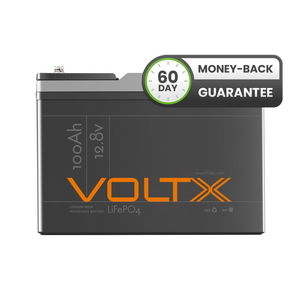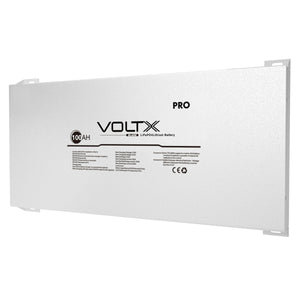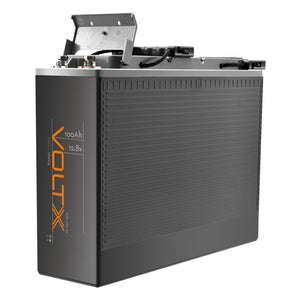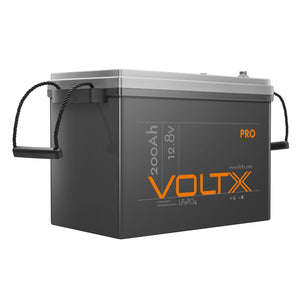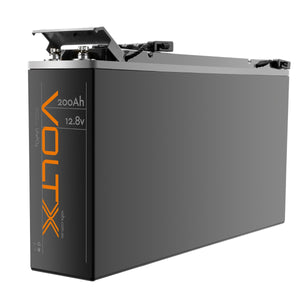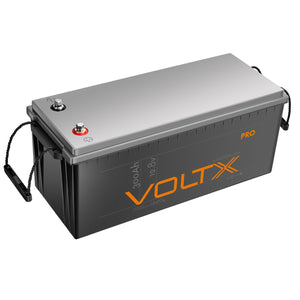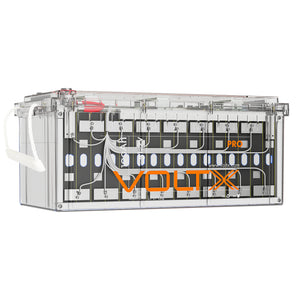There are a number of methods to get camping power and one surefire way to do so is through a good camping battery pack. These compact battery power packs are great for bringing to campsites or adding to any recreational vehicles. At times, these can be associated with power banks which are often used for charging gadgets. While these are camping battery packs too, we're going to focus on bigger yet portable ones that are usually encased in battery boxes. These portable battery packs for camping are ideal for avid campers or those who have an off-grid cottage.
It's also a practical way to ensure you always have power in case of emergency or whenever you want to run extra appliances while enjoying the great outdoors. Typically, camping battery packs last for 1.5 to 3.5 years but this is largely dependent on factors including quality, type of battery, brand, maintenance, and more.
Camping battery packs have several types but the most popular ones would be AGM batteries and lithium batteries. AGM battery is a type of lead-acid battery and is commonly used by a lot of Aussie campers. This battery pack for camping is durable with high power output. It lasts between three to five years and has a spill-proof structure for easy maintenance. All these features come at an affordable price as well, making AGM batteries famous in the camping scene. Lithium batteries, on the other hand, are newer and in terms of overall quality, better than the other battery types. The lithium iron phosphate battery or LiFePO4 in general has been carving its name as one of the most reliable batteries in the market.
Why Are Lithium Batteries Better For Camping?
LiFePO4 batteries are known for having a higher energy density and a built-in battery management system for superior cell performance. This it the maintenance-free battery that every camper would love to have as it does not explode nor catch fire and provides automatic protection against common battery issues. Packing a LiFePO4 means you never have to worry about overcharging, undercharging, overheating, and short circuits.
Aside from safety, lithium batteries are also known for improved capacity, especially if they are lithium deep-cycle batteries. While most of their lead-acid counterparts have a 50% depth of discharge, a lithium battery has 80%, allowing you to use it for longer without recharging. Charging is more convenient too since most lithium batteries can handle up to 100A of charge current. The only downside of these is the price. Lithium is usually more expensive, however, with its lifespan of up to seven years coupled with excellent quality, it almost always proves to be cost-effective.
What Happens If a Lithium Battery Gets Wet?
All lithium batteries regardless of their capacity or brand should be handled with care, especially in situations where they can get wet. Whether it's a camper trailer battery, battery for camping fridge, or caravan battery, make sure it doesn't get wet in the rain or accidentally be partially submerged in water. Even the best camping battery power packs can be damaged by water mostly through corrosion, which will eventually lead to a decline in performance and lifespan. This starts when the liquid penetrates the inside of your battery, causing the chemicals to be diluted and its metal features to develop rust.
Can You Replace AGM With Lithium Battery In Boats and RVs?
As mentioned earlier, lithium batteries are also great for recreational vehicles and boats, so switching to them is actually a good idea. Usually, RVs use 12V lithium battery packs and 100Ah lithium batteries to effectively power the appliances on board, while boat batteries are better off with a lithium dual battery system comprised of a deep-cycle battery and starter battery. However, before you upgrade your ride with a lithium battery, there are just a few considerations you need to take into account first.
Number one is the battery's charging profile. Different batteries call for different chargers and charging procedures. If you're switching to a lithium battery, chances are you need to change to an appropriate lithium battery charger too. You need to replace your solar charge controller as well if you're using solar panels to top off your battery bank. Next would be the cranking amps. Lithium batteries don't have this feature since they are not suitable to be used as a starting battery. They are mostly used as a house or service battery for powering electronic equipment like appliances and gadgets. Going for a lithium battery means you need to have it installed separately from your vehicle's cranking battery. Another thing you might need would be a DC-to-DC converter to limit the amount of current the battery draws from the alternator. Lithium batteries have extremely little internal resistance and might take up a lot of charging current from the alternator causing it to work excessively hard, so this device is a must-have to prevent damage. If you don't want to opt for this, you can also replace the alternator with something suitable for higher amperage charging and temperature control.
More from Outbax
Did someone mention camping batteries? We happen to have some of the best camping battery packs in Australia here! Outbax offers a wide range of LiFePO4 batteries perfect for your next adventure from slimline lithium batteries to standard battery packs. All our portable lithium battery packs for camping retail for an affordable price too, but don't back out just yet-these are of guaranteed quality! We provide a one-stop shop for all your camping power needs so aside from reliable batteries, we have solar panels, inverter generators, and power stations too. Shop now!
